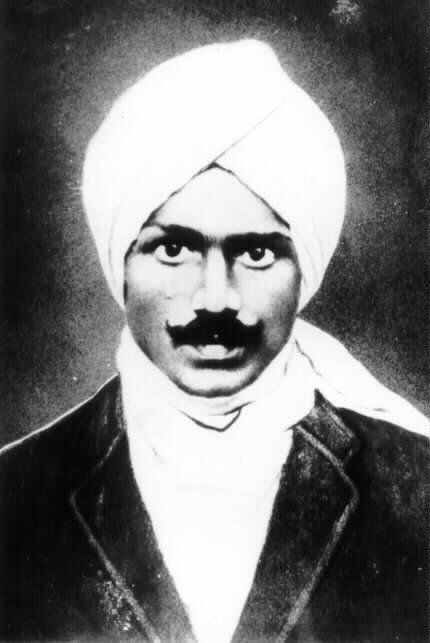Indian History
International Bharati Festival 2020
- 12 Dec 2020
- 4 min read
Why in News
Recently, the Prime Minister has addressed the International Bharati Festival 2020, virtually organised by the Vanavil Cultural Centre (Tamil Nadu).
- The event celebrates the 138th birth anniversary (11th December 2020) of Tamil poet and writer Mahakavi Subramanya Bharati.
- Scholar Shri Seeni Viswanathan received the Bharathi Award for this year.
Key Points
- Subramanya Bharati:
- Birth: 11th December 1882, in Ettayapuram, Madras Presidency.
- Brief Profile: An outstanding Indian writer of the nationalist period (1885-1920) who is regarded as the father of the modern Tamil style.
- He is also known as ‘Mahakavi Bharathiyar’.
- His strong sense of social justice drove him to fight for self-determination.
- Involvement during Nationalist Period:
- After 1904, he joined the Tamil daily newspaper Swadesamitran.
- This exposure to political affairs led to his involvement in the extremist wing of the Indian National Congress (INC) party.
- In order to proclaim its revolutionary ardour, Bharathi had the weekly newspaper named ‘India’ printed in red paper.
- It was the first paper in Tamil Nadu to publish political cartoons.
- He also published and edited a few other journals like “Vijaya”.
- He attended the annual sessions of INC and discussed national issues with extremist leaders like Bipin Chandra Pal, B.G. Tilak and V.V.S. Iyer.
- His participation and activities in Benaras Session (1905) and Surat Session (1907) of the INC impressed many national leaders for his patriotic fervour.
- He published the sensational “Sudesa Geethangal” in 1908.
- Bharati’s reaction to the Russian Revolutions of 1917, in a poem entitled “Pudiya Russia” (“The New Russia”), offers a fascinating example of the poet’s political philosophy.
- He was forced to flee to Pondicherry (now Puducherry), a French colony, where he lived in exile from 1910 to 1919.
- During this time, Bharati’s nationalistic poems and essays were popular successes.
- After 1904, he joined the Tamil daily newspaper Swadesamitran.
- Important Works: Bharati’s best-known works include Kaṇṇan pāṭṭu (1917; Songs to Krishna), Panchali sapatham (1912; Panchali’s Vow), Kuyil pāṭṭu (1912; Kuyil’s Song), Pudiya Russia and Gnanaratham (Chariot of Wisdom).
- Many of his English works were collected in Agni and Other Poems and Translations and Essays and Other Prose Fragments (1937).
- Death: 11th September 1921.
- Significance in Present Times:
- The poet’s definition of progress had a central role for women. He wrote women should walk with their head held high, looking people in the eye.
- The government is inspired by this vision and is working to ensure women-led empowerment.
- He believed in a healthy mix between the ancient and the modern, indicating a need to develop a scientific temper, a spirit of inquiry and march towards progress.
- The poet’s definition of progress had a central role for women. He wrote women should walk with their head held high, looking people in the eye.
- Bharathi Award:
- The Bharati Award was instituted in 1994 by Vanavil Cultural Centre.
- Every year, it is being conferred on eminent persons who have done laudable service in any field of social relevance and thus worked towards the fulfilment of Bharati’s dreams.




